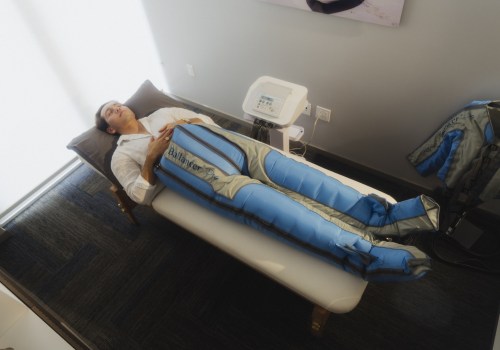Sleep therapy has gained significant attention in recent years as a potential treatment for reducing anxiety, a common and often debilitating mental health condition. The connection between sleep and anxiety is well-documented, with numerous studies showing that poor sleep quality and sleep disorders are closely linked to increased levels of anxiety. This relationship is bidirectional, meaning that anxiety can lead to sleep disturbances, and poor sleep can exacerbate anxiety symptoms. Given this close relationship, sleep therapy has emerged as a promising approach to help manage and reduce anxiety.
One of the primary forms of sleep therapy used to address anxiety is Cognitive Behavioral Therapy for Insomnia (CBT-I). This therapeutic approach focuses on changing the thoughts and behaviors that contribute to insomnia, which can, in turn, alleviate anxiety symptoms. CBT-I involves several techniques, including sleep restriction, stimulus control, and relaxation training. Sleep restriction aims to consolidate sleep by limiting the amount of time spent in bed to match the actual sleep time, gradually increasing it as sleep efficiency improves. Stimulus control helps individuals associate the bed with sleep rather than wakefulness by establishing a consistent sleep-wake schedule and avoiding activities such as watching TV or working in bed. Relaxation training includes methods such as progressive muscle relaxation and deep breathing exercises, which can reduce physiological arousal and promote a state of calm conducive to sleep.
Another aspect of sleep therapy that can help reduce anxiety is the establishment of good sleep hygiene practices. Sleep hygiene refers to habits and environmental factors that are conducive to good sleep. These practices include maintaining a regular sleep schedule, creating a comfortable and quiet sleep environment, avoiding caffeine and heavy meals before bedtime, and limiting exposure to screens and bright lights in the evening. By adopting these habits, individuals can improve their overall sleep quality, which can have a positive impact on their anxiety levels.Another aspect of sleep therapy that can help reduce anxiety is the establishment of good sleep hygiene practices. Sleep hygiene refers to habits and environmental factors that are conducive to good sleep. These practices include maintaining a regular sleep schedule, creating a comfortable and quiet sleep environment, avoiding caffeine and heavy meals before bedtime, and limiting exposure to screens and bright lights in the evening. By adopting these habits, individuals can improve their overall sleep quality, which can have a positive impact on their anxiety levels.
Moreover, mindfulness and meditation are often incorporated into sleep therapy to help manage anxiety. Mindfulness practices involve focusing on the present moment and accepting thoughts and feelings without judgment. Meditation techniques, such as guided imagery and body scans, can help individuals relax and reduce the mental chatter that often contributes to anxiety and interferes with sleep. Research has shown that mindfulness and meditation can improve sleep quality and reduce anxiety symptoms, making them valuable components of sleep therapy.
The physiological benefits of good sleep are also significant in the context of anxiety reduction. During sleep, particularly deep sleep and REM sleep, the body undergoes various restorative processes that are crucial for mental health. Deep sleep helps regulate stress hormones such as cortisol, while REM sleep is essential for emotional processing and regulation. When sleep is disrupted, these processes can be impaired, leading to heightened anxiety. By improving sleep quality through therapy, individuals can support their body’s natural ability to manage stress and emotions, thereby reducing anxiety.
While sleep therapy shows promise in reducing anxiety, it is important to acknowledge that it may not be a standalone solution for everyone. Some individuals may require a combination of treatments, including medication and other forms of psychotherapy, to effectively manage their anxiety. However, incorporating sleep therapy into a comprehensive treatment plan can enhance overall outcomes and provide individuals with additional tools to cope with anxiety.
Incorporating professional psychological support can further enhance the effectiveness of sleep therapy for anxiety. For example, services like AGS Psicólogos Las Rozas offer specialized psychological care that can address both sleep issues and anxiety. These professionals can provide tailored interventions that consider the unique needs and circumstances of each individual, helping them achieve better sleep and reduce anxiety.
Furthermore, research continues to explore the mechanisms by which sleep therapy can impact anxiety. For instance, studies have examined how improving sleep can enhance cognitive function, emotional regulation, and resilience to stress, all of which play a role in anxiety management. As our understanding of these mechanisms grows, so does the potential for developing more targeted and effective sleep-based interventions for anxiety.
In conclusion, sleep therapy offers a valuable approach to reducing anxiety by addressing the underlying sleep disturbances that contribute to anxiety symptoms. Through techniques such as CBT-I, sleep hygiene practices, mindfulness, and meditation, individuals can improve their sleep quality and, consequently, their mental health. While sleep therapy may not be a cure-all, it can be a crucial component of a holistic treatment plan for anxiety. With the support of professionals like those at AGS Psicólogos Las Rozas, individuals can better navigate the challenges of anxiety and achieve a more restful and restorative sleep, ultimately leading to a significant reduction in anxiety symptoms.










